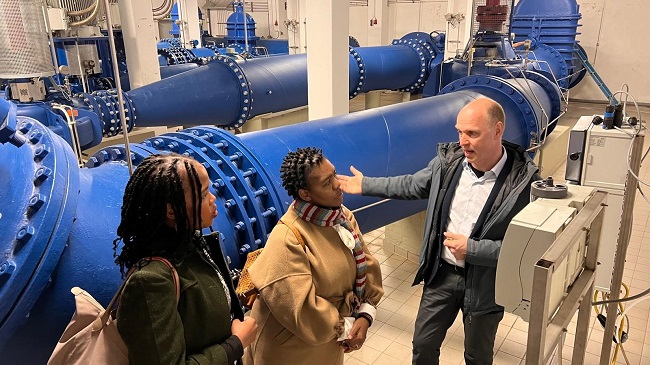– Advertisement –
Access to essential urban services – such as water, sanitation, transport, energy, and waste management – is more than just infrastructure. It’s a matter of gender equality.


When these services are inadequate, women, particularly those from marginalised communities, bear the heaviest burden. But when cities prioritise gender-responsive urban services, they unlock opportunities for women’s economic empowerment, health, and leadership.
Inclusive urban services are not just about fairness; they are fundamental for resilient and thriving cities. UN-Habitat says it is at the forefront of this transformation, working with partners to bridge gender gaps in urban development.
Empowering women in e-mobility
In Kigali, Rwanda, a pioneering project is reshaping the transport industry for women. The SOLUTIONSplus initiative, led by UN-Habitat and the Urban Electric Mobility Initiative, the City of Kigali, Deutsche Gesellschaft für Internationale Zusammenarbeit (GIZ) Rwanda, and Ampersand Rwanda, is integrating gender-inclusive strategies into electric mobility.
Through driving training, and financial support for electric vehicles, 49 women have successfully joined the moto-taxi industry, achieving a driving test success rate of 69 per cent.
Key lessons from this initiative highlight the importance of addressing local gender dynamics, ensuring safety, fostering women-led networks, and implementing policies that create long-term opportunities for women in transport.
Women leading change in water utilities
In the water sector, an EU-funded partnership between eThekwini Water and Sanitation (South Africa) and Hamburg Wasser (Germany), supported by UN-Habitat’s Global Water Operators’ Partnerships Alliance (GWOPA), is advancing gender equality. This initiative is increasing women’s representation in water utilities, fostering leadership, and shaping gender-inclusive policies.
The results are promising: a 133 per cent increase in gender peer exchanges, greater knowledge-sharing, and policy reforms at operational and management levels. Expert guidance from non-governmental organisation Women Engage for a Common Future has further enhanced gender mainstreaming efforts, ensuring that women have a stronger voice in shaping urban water management.
Women and youth in the Blue Economy
The Go Blue Project, supported by the European Union, is transforming economic opportunities in Kenya’s six coastal counties. This initiative prioritises women and youth, aiming to create 3,000 new jobs and equip 10,000 beneficiaries with skills in sustainable resource management.
A standout success is the material recovery facility in Mwatate, Taita Taveta County, where women waste pickers, once working in hazardous conditions, now have formal employment with improved working conditions and protective equipment. The project’s broader impact includes municipal solid waste strategies and an action plan that has already generated 100 long-term jobs in waste management.
Beyond employment, Go Blue promotes integrated land-sea planning to support sustainable urban development and marine conservation. By fostering climate resilience and economic growth, the initiative ensures Kenya’s coastal communities can thrive while protecting vital ocean resources for future generations.
Why gender-inclusive urban services matter
Governments, private sector actors and development partners should take bold action to embed gender equity in urban service delivery. This means integrating gender-responsive policies into urban planning, ensuring women’s voices are represented in decision-making and committing to long-term investments that empower women in urban spaces. Addressing these disparities is not only a matter of justice but a strategic move towards building stronger, more inclusive urban economies.









